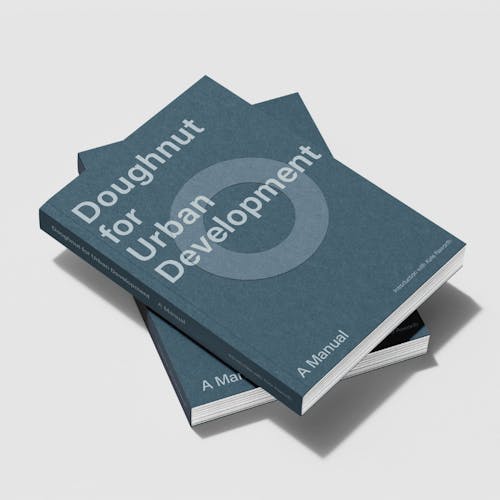Hans Tavsen's Park and Korsgade
Combining smart rainwater solutions, city nature and local engagement in a new model for urban climate adaptation
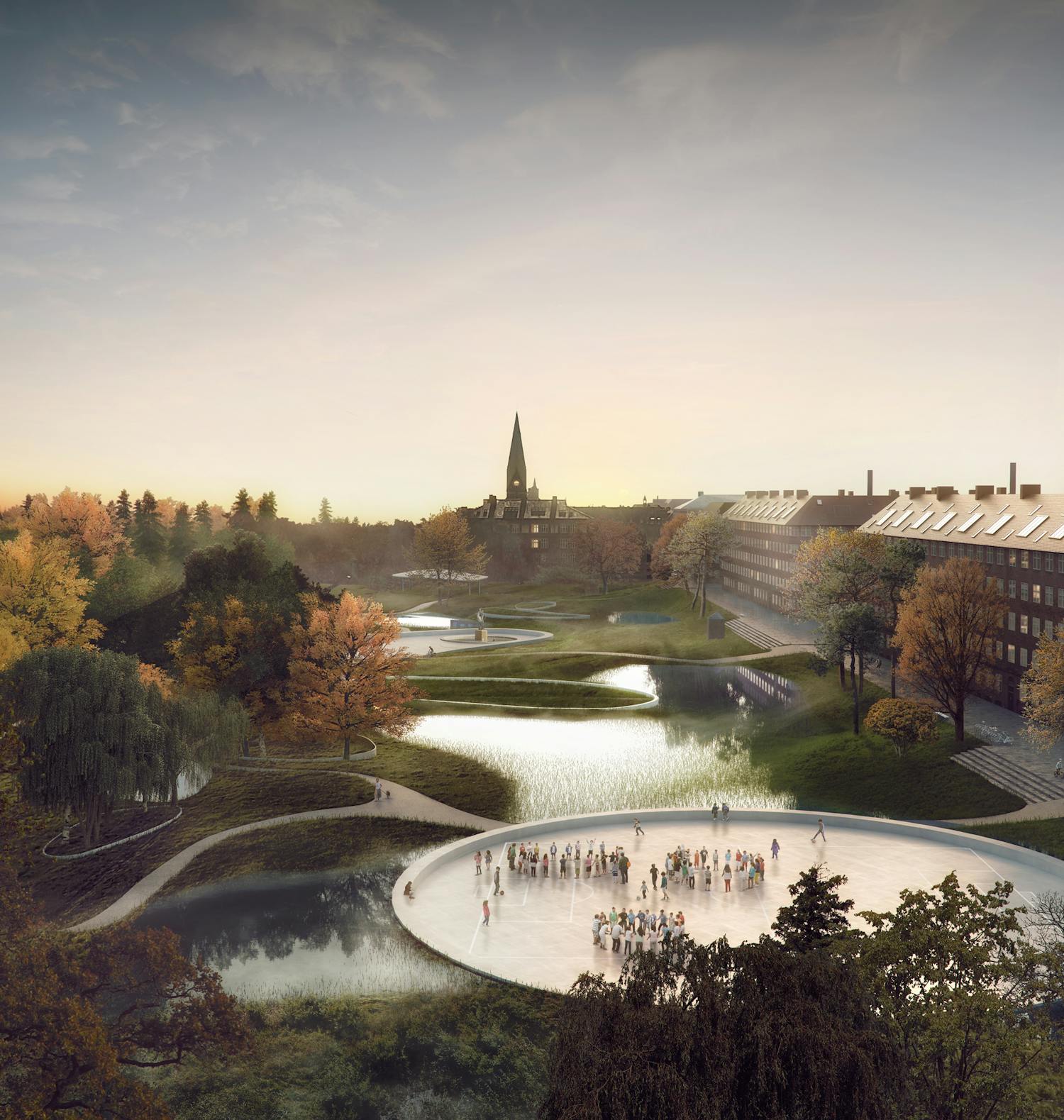
Curious for more?
Tine Langsted Krogstrup
Project Director, Associate Partner, Landscape Architect MAA MDL
Location
Copenhagen, Denmark
Size
8,5 ha
Year
2016 — 2025
Client
The City of Copenhagen
Role
Lead consultant, landscape architect
Partners & Collaborators
Rambøll, Arki_Lab, Den Nationale Platform for Gadeidræt, Aydin Soei, Social Action
Water – whether the increase of it, the pollution of it or the lack of it – is going to be one of the main urban challenges of the 21st Century. The solution? To create a robust urban nature that solves the concrete problem of cloudbursts, so our cities avoid flooding, while creating several new and cohesive urban spaces that offer social community, nature-based experiences and creative opportunities. Hans Tavsens Park & Korsgade demonstrates how it is done.
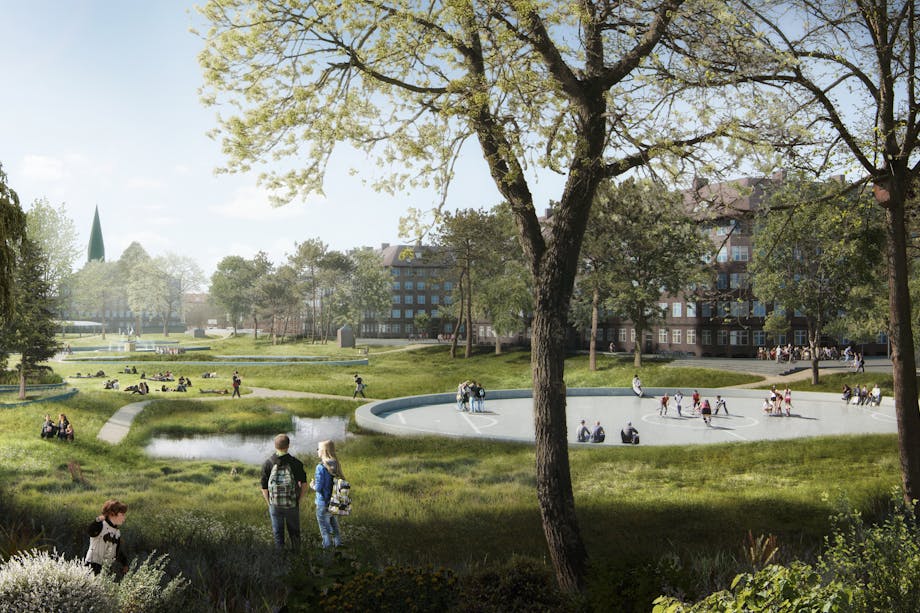

The project, a part of the Nordic Built Challenge Award, is an integrated urban design and climate adaption project in the center of Copenhagen. It is an ambitious prime example of how to cope with climate changes, local rainwater management and maximum biological water purification whilst providing unique recreational value for experiences and activities, in both existing urban spaces and in new biotopes. By combining the area’s existing qualities and unique local community with city nature and smart cloudburst solutions, the new urban spaces significantly improve the quality of life for the whole of Inner Copenhagen.


Rainwater is collected and used locally while excess water from cloudbursts is lead from the park to Peblinge Lake, being cleansed by city nature biotopes along Korsgade. Hydrological, biological and social circuits will work together in a strong symbiosis that not only climate proof inner Nørrebro, but also has a positive effect of the entire city of Copenhagen. The entire project area is designed as a water circuit where a series of purifying biotopes collect and clean the rainwater. In the park, a terrain machining creates large reservoirs, and a long channel is established all the way from the park to the central lakes of Copenhagen. This combination allows for the collection and retention of large amounts of rainwater. In the event of cloudbursts, water can be led all the way into the lakes and the large reservoirs can be flooded. The water both has a visible function in the streets and parks, it contributes to watering and improves the microclimate.
Local schools and stakeholders are involved in the implementation of the project creating a strong local sense of ownership and identity that ensures a robust and long-lasting development of the neighborhood.
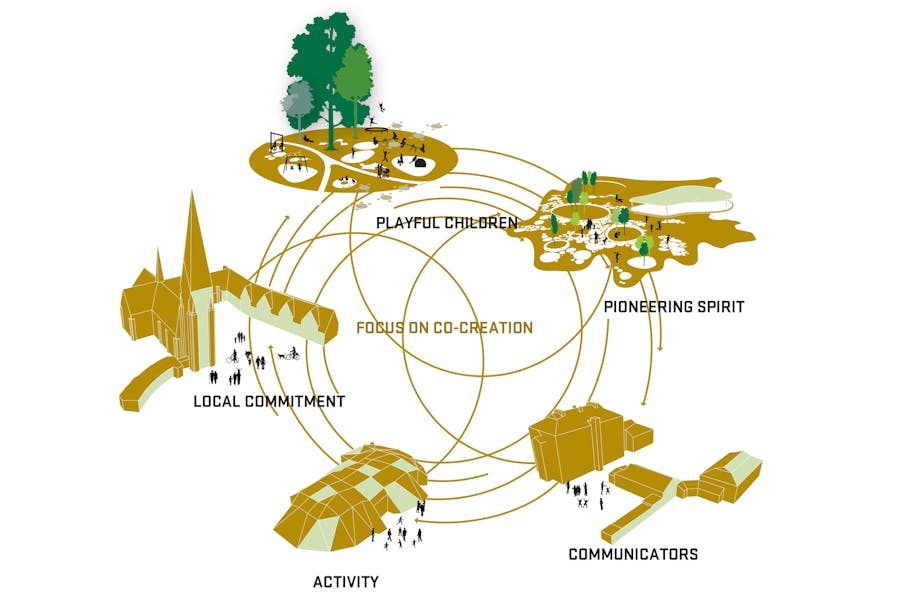
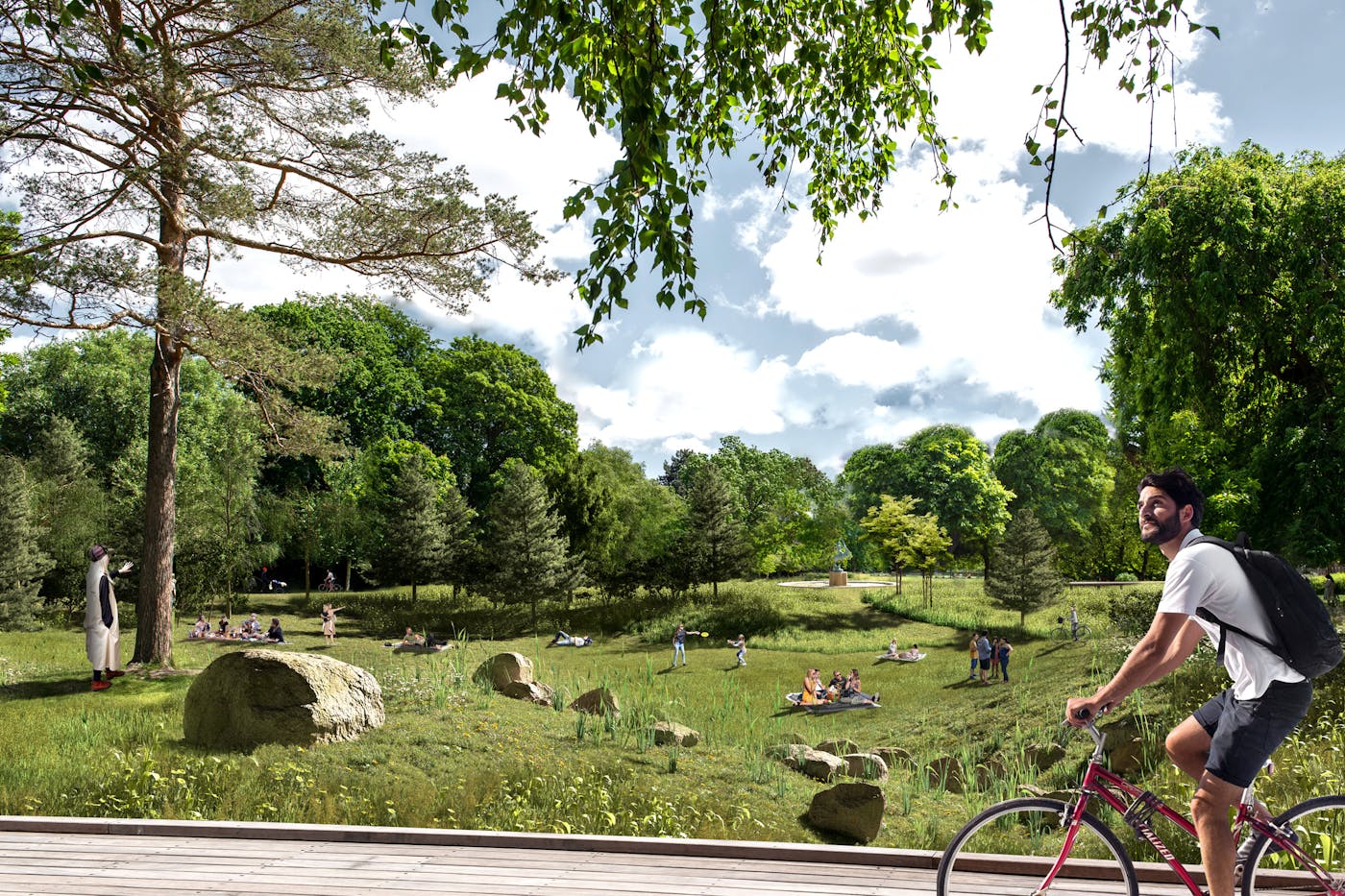


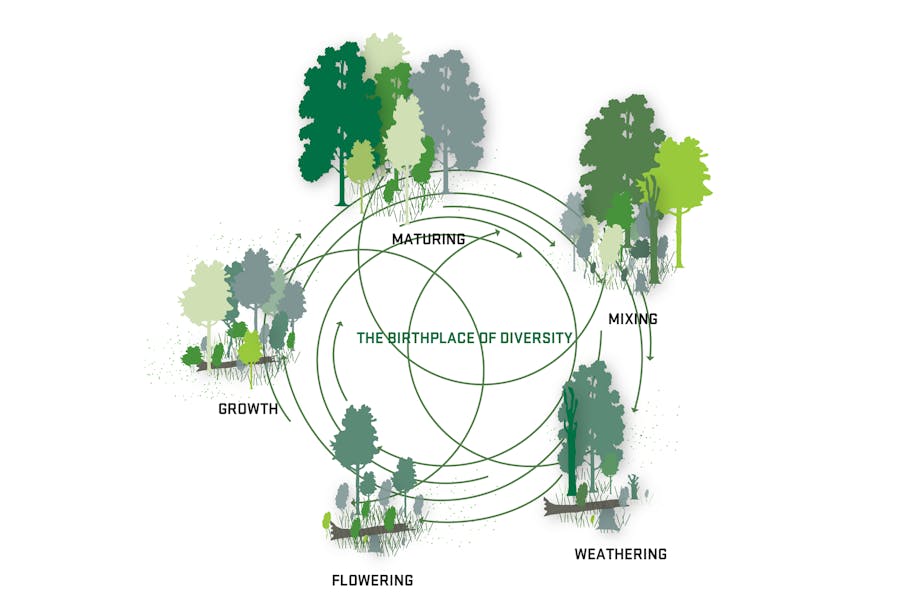
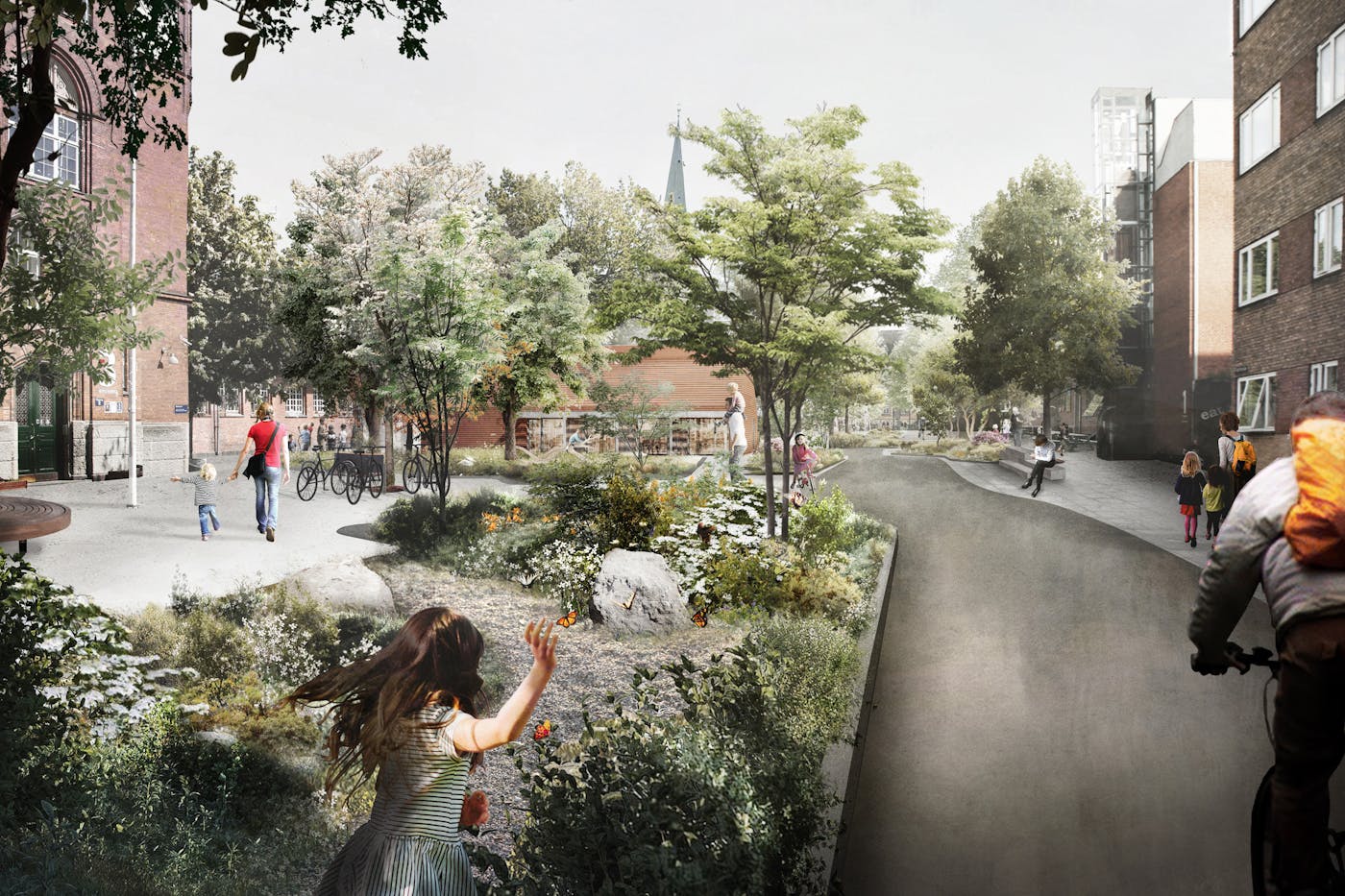
We design places for life. All life.
Fundamentals
Come explore the fundamentals of our office together with us



fund. 12
Mist
Read more

fund. 27
White
Read more


fund. 19
Essay: The Bark Room
Read more



fund. 26
Sound
Read more
fund. 25
Roots
Read more









fund. 20
Sakuteiki
– The Book of Garden
Read more
fund. 26
Atmosphere
Read more















